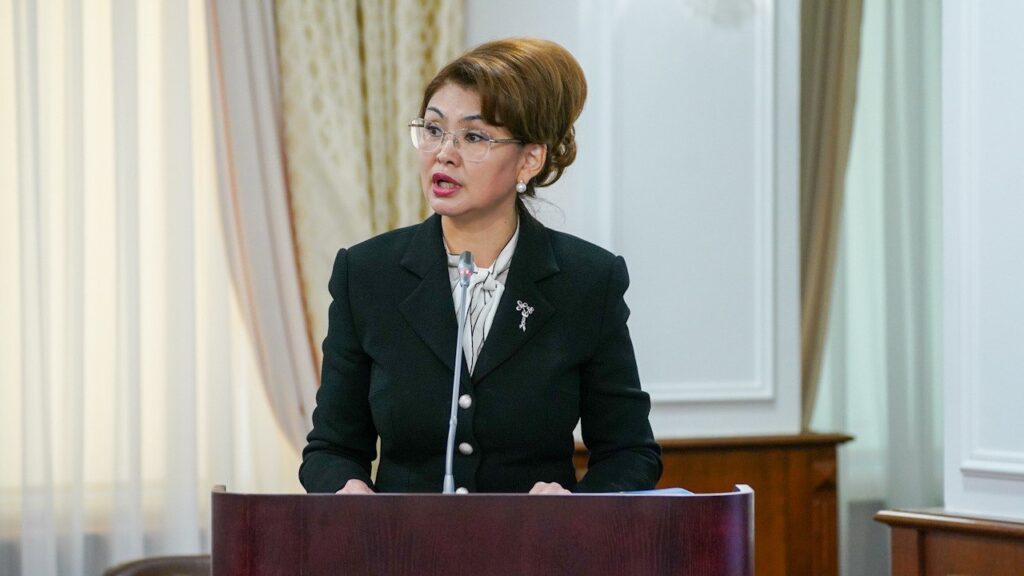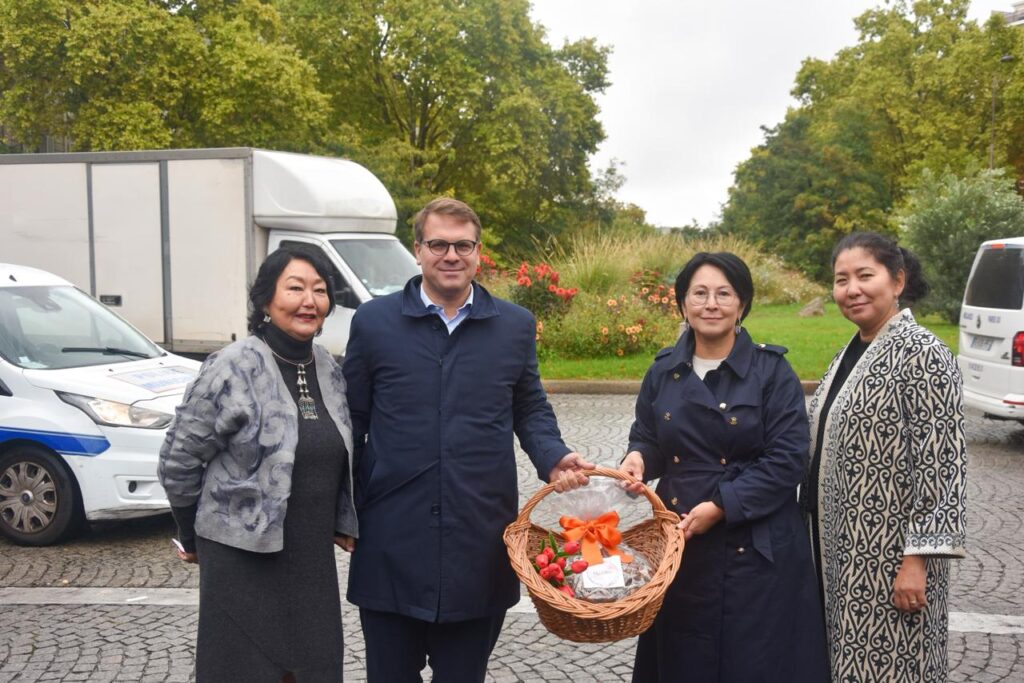Equality Now is an international human rights organization that uses the law to protect and promote the rights of all women and girls worldwide. The organization combines grassroots activism with legal advocacy at national, regional, and international levels, and collaborates closely with local partners to ensure governments enact and enforce laws protecting women’s and girls’ rights.
The Times of Central Asia spoke with Equality Now’s Eurasia consultant Janette Akhilgova about the issues that women and girls in Central Asia face, and how women’s rights are being addressed.
TCA: Equality Now works in all regions of the world. Which social issues and inequalities are most affecting women and girls in Central Asia at the present time?
JA: One of Equality Now’s main focuses in Central Asia is ending sexual violence and improving access to justice for survivors, specifically women and girls. In 2019, we published “Roadblocks to Justice: How the Law is Failing Survivors of Sexual Violence in Eurasia,” examining laws on rape and other forms of sexual violence in 15 former Soviet Union countries. This report formed the basis of our work in Eurasia, helping us identify the major legal gaps in the region.
A critical legal gap is the absence of a consent-based definition of rape, which means the law does not recognize a broad range of coercive circumstances where consent cannot be genuine, willing, or voluntary. This omission leaves some forms of sexual violence unpunished, perpetuating a culture of impunity. Inadequate support systems for sexual violence survivors compound the problem, enabling miscarriages of justice and fostering a widespread lack of trust in legal systems.
Another obstacle to justice for survivors is the provision for conciliation between parties in rape cases. This practice involves sexual violence survivors being encouraged or pressured to reach an agreement with their assailant outside of the formal criminal justice system. The approach often involves mediating a settlement, whether financial or otherwise, between the survivor and the accused, typically facilitated by families, communities, or even legal authorities.
Conciliation is sometimes not voluntary as survivors are often subjected to societal pressure. The social stigma attached to rape, a strong culture of victim blaming, and a lack of awareness about legal procedures are also factors that contribute to sexual violence cases not being reported to authorities and instead being dealt with privately.
TCA: Is progress being made to eradicate these issues? Conversely, are there any parts of life where women and girls see their rights eroded?
JA: Central Asian countries have made varying progress in advancing women’s rights and welfare. The 2022 Global Gender Gap Report highlighted significant strides by Kazakhstan, such as lifting restrictions on “banned professions” so that women are no longer legally prohibited from doing certain jobs previously deemed “too dangerous” or “unsuitable” for women. The country has also adopted new and comprehensive laws to protect women’s and children’s rights.
Another progressive legal reform in Kyrgyzstan was the introduction in 2024 of a law on domestic, sexual, and gender-based violence that strengthened access to justice for women and girls, including those with disabilities.
The World Bank’s 2024 report, “Women, Business, and the Law,” named Uzbekistan one of the top five improvers in gender equality globally. This recognition was due in part to the passing of a bill that criminalized domestic violence and strengthened penalties for sexual violence and stalking.
The new law incorporated many of the recommendations made by Equality Now in its 2022 submission to the Committee on the Elimination of Discrimination Against Women (CEDAW). This submission contained a detailed analysis of Uzbekistan’s laws on sexual violence and provided guidance to improving protections in compliance with international human rights standards. In 2024, a new bill aimed at strengthening protections for children from all forms of violence was passed, and the president is expected to sign this into law soon.
For Kazakhstan, the country’s ranking in the Global Gender Gap report dropped from 65th place in 2022 to 76th in 2024 due to a widening gender wage gap and persistent barriers to women’s political participation.
TCA: Equality Now counts Europe and Central Asia as one region. How does equality for women in Central Asia compare with situations in Europe?
JA: Equality Now’s work to end sexual and gender-based violence in Eurasia focuses specifically on countries that were part of the former Soviet Union. All countries grapple with a mix of challenges to women’s rights that reflect unique cultural, legal, and social contexts, while also manifesting patterns of gender discrimination and harm found globally. This is why it is vital to combine localized and global efforts to advance equality.
Europe has the highest gender parity and has established advanced legal frameworks to protect women’s rights, no country anywhere has achieved full gender equality. The Council of Europe’s Istanbul Convention, which provides a comprehensive framework for the protection of women and girls from gender-based violence, has not been universally ratified across Europe, and none of the Central Asian countries have adopted it.
Intersecting forms of discrimination – based on race, immigration status, disability, sexuality, and gender identity – create additional barriers to justice for women and girls. In Central Asia, access to justice for women is further complicated by a strong culture of shame and deeply rooted patriarchal norms.
TCA: How receptive are Central Asian governments to the work you do? Are there any current initiatives you would highlight as being beneficial? Conversely, what problems do you face with certain governments?
JA: Equality Now has established productive cooperation with governments and local partners in the countries we work in and it is important to acknowledge the positive efforts to improve protections for women and girls against violence and gender inequality.
In 2021, Equality Now published the manual “Effectively Investigating, Prosecuting, and Adjudicating Sexual Violence Cases in Georgia” to support practitioners working on improving access to justice for sexual violence survivors in Georgia. A similar manual for Kyrgyzstan, aimed at training legal aid lawyers on sexual violence and disability, is currently being developed in collaboration with the Commissioner on the Rights of the Child and Bar Association of Kyrgyzstan. We have also proposed incorporating training on the manual into Kyrgyzstan’s National Action Plan for implementing the Convention on the Rights of the Child (CRC).
Uzbekistan’s National Agency of Social Protection invited our network of civil society organizations to provide a proposal on legal reforms related to sexual violence against children. These collaborations show the governments’ receptiveness and willingness to seek and incorporate our expertise.
However, promoting gender equality and women’s rights is not always easy in the region. For instance, in Kazakhstan, the government controls the women’s rights agenda by supporting pro-government groups while targeting organizations like NeMolchi (Do Not be Silent) Foundation, whose head, Dina Smailova, was forced to flee the country for speaking up against sexual violence.
In 2024, Kyrgyzstan introduced a “foreign agents” law, giving the state tighter control over non-governmental organizations that receive foreign funding and engage in activities deemed political. Impacted nonprofit organizations are required to register as “foreign representatives,” and the government now has greater powers to monitor their activities and suspend or shutter them. Alongside creating a more challenging working environment for civil society and human rights defenders, Kyrgyzstan has also been cracking down on independent media, including raiding media outlets and arresting journalists.









